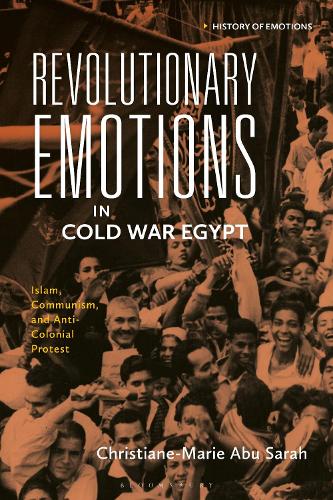
Revolutionary Emotions in Cold War Egypt: Islam, Communism, and Anti-Colonial Protest
(Hardback)
Available Formats
Publishing Details
Revolutionary Emotions in Cold War Egypt: Islam, Communism, and Anti-Colonial Protest
By (Author) Christiane-Marie Abu Sarah
Bloomsbury Publishing PLC
Bloomsbury Academic
2nd May 2024
United Kingdom
Classifications
Professional and Scholarly
Non Fiction
Social and cultural history
Political activism / Political engagement
962.052
Physical Properties
Hardback
264
Width 156mm, Height 234mm
Description
In autumn 1951, a diverse array of Muslim, Christian, and Jewish students from clubs like the Muslim Brotherhood and the Workers Vanguard launched a guerrilla struggle against British occupation of the Suez Canal Zone. Revolutionary Emotions in Cold War Egypt recovers this overshadowed revolution of 1951, and the part played by the Canal struggle in the overthrow of the Egyptian monarchy. In a study spanning a half-dozen international archives, the book delves into the divisive court cases and rousing club newspapers, intimate memoirs and personal poetry of Egyptian activists. These documents reveal that in the early years of the Cold War, morality tales and moral emotions were at the heart of the methods and the successes of Egyptian activists. What stories did activists tell, and how did the emotional appeals and moral talk of Islamist and communist clubs compare How did Arabic-speaking populations negotiate moral norms, and what role did emotions like love, anger, and disgust play in political campaigns Taking a journey through Islamic parables about perilous beaches, communist adaptations of Greek myths, and popular stories about Juhas Nail and Paul Reveres Ride through the Suez Canal, this book uncovers a rich history of activist storytelling. These practices uncover the mechanics of morality tales, and reveal how activists used narratives to convert emotion to motion and drive social change. Still vitally important for readers today, such findings shed light on how paramilitary groups and protest movements use moral appeals to attract supportand why activist campaigns become the controversial epicentre of polarizing emotional battles.
Author Bio
Christiane-Marie Abu Sarah is Assistant Professor in the Department of History and Political Science at Erskine College, USA, where she specialises in Middle East history, the Global Cold War, and Global Conflict Studies. She is also the Managing Editor of the peer reviewed scholarly journal al-'Usur al-Wusta (The Journal of Middle East Medievalists).
